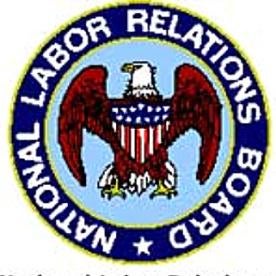In a sweeping five-page Memorandum, new National Labor Relations Board General Counsel Peter B. Robb has directed NLRB Regional Offices to submit to his Division of Advice for review cases involving “significant legal issues.” The Board’s chief prosecutor’s guidance describes “significant legal issues” to include many Obama Board decisions that both overruled precedent and “involved one or more dissents.”
The “Mandatory Submissions to Advice” (Memorandum GC 18-02), dated December 1, 2017, further directs Regional Offices to submit to the Division of Advice “cases involving issues that the Board has not decided, and any other cases that the region believes will be of importance to the General Counsel.”
Robb has not yet identified any “novel legal theories” he wants explored through mandatory submissions to the Division of Advice.
Reversal of Obama-Board Precedent Sought
Robb signals that he will ask the NLRB to overturn numerous hot-button Obama-era Board precedents. Indeed, his Memorandum identifies 26 examples of Obama-era decisions that “might support issuance of complaint [under current Board law] but where [his office] also might want to provide the Board with an alternative analysis.”
Among others, those cases involve:
-
A finding of joint employer status based on evidence of indirect or potential control over the working conditions of another employer’s employees.
-
Concerted activity where the employee engaged in “obscene, vulgar, or other highly inappropriate conduct.”
-
Handbook rules regulating or prohibiting: disrespectful conduct, use of employer trademarks and logos, use of cameras and recording devices in the workplace, and confidentiality of workplace investigations. (Robb also signals his overall disagreement with the NLRB’s analysis of employer rules and policies. He directs submission to the Division of Advice “[o]ther rules where the outcome would be different if Chairman [Philip] Miscimarra’s” alternative rules analysis test was applied.)
-
Requiring employers that allow employees to use their email systems to allow employees to use those systems to engage in protected concerted activities under Section 7 of the National Labor Relations Act.
-
Requiring employers to offer to bargain with the union before imposing discretionary discipline where the union and the employer have not executed an initial collective-bargaining agreement.
-
Establishing that the dues check off obligation survives the expiration of the collective bargaining agreement.
-
Broadening the circumstances under which witness statements must be disclosed to a union.
-
Finding unlawful the failure to give a company-wide wage increase to newly represented employees during initial contract bargaining.
-
The range of permissible conduct by union representatives during Weingarten interviews and the application of Weingarten in the drug testing context.
-
Cases broadening the circumstances under which an employer may be found to be a “perfectly clear successor.”
Griffin Initiatives Also Rescinded
Memorandum GC 18-02 also rescinds many of former General Counsel Richard F. Griffin’s initiatives, where Griffin had stated his office’s position on several important issues and others where he hoped to overturn additional NLRB precedents.
Seven Memoranda issued by Griffin were rescinded, including “Report of the General Counsel Concerning Employer Rules,” “General Counsel’s Report on the Statutory Rights of University Faculty and Students in the Unfair Labor Practice Context,” and “Seeking Board Reconsideration of the Levitz Framework.” (The Levitz case involved circumstances under which an employer may withdraw recognition from a union.)
Also rescinded are initiatives seeking to:
-
Extend Purple Communications, where the NLRB found employees who have access to employer email should have access to employer email for personal use (e.g., for protected activity and internet, phones, and instant messaging use), if employees use such email regularly in the course of their work;
-
Apply Weingarten (the right to have a representative present during investigative interviews that may result in discipline) in non-union settings; and
-
Overturn the Tri-Cast doctrine on the legality of employer statements to employees, during organizing campaigns, that they will not be able to discuss matters directly with management if they select union representation.
Although the Memorandum is no guarantee that all Obama-era precedents will be overturned, it should provide employers with substantial comfort that relief is on the way.






 i
i


